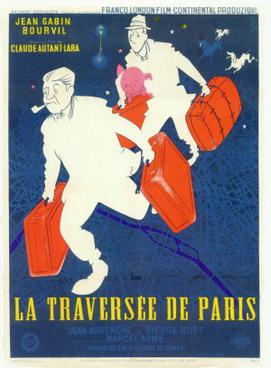A blog formerly known as Bookishness / By Charles Matthews
"Dazzled by so many and such marvelous inventions, the people of Macondo ... became indignant over the living images that the prosperous merchant Bruno Crespi projected in the theater with the lion-head ticket windows, for a character who had died and was buried in one film and for whose misfortune tears had been shed would reappear alive and transformed into an Arab in the next one. The audience, who had paid two cents apiece to share the difficulties of the actors, would not tolerate that outlandish fraud and they broke up the seats. The mayor, at the urging of Bruno Crespi, explained in a proclamation that the cinema was a machine of illusions that did not merit the emotional outbursts of the audience. With that discouraging explanation many ... decided not to return to the movies, considering that they already had too many troubles of their own to weep over the acted-out misfortunes of imaginary beings."--Gabriel García Márquez, One Hundred Years of Solitude
Thursday, May 5, 2016
Four Bags Full (Claude Autant-Lara, 1956)
Like most movie-lovers whose knowledge of film extends beyond "Hollywood," I was familiar with Jean Gabin, especially through his work for Jean Renoir in Grand Illusion (1937), La Bête Humaine (1938), and French Cancan (1955). But although I had encountered the name, I didn't know Bourvil, celebrated in France but not so much on this side of the Atlantic. Which made it difficult for me at first to capture the tone and humor of Four Bags Full, a film also known as La Traversée de Paris, The Trip Across Paris, and Pig Across Paris. Since the film begins with newsreel footage of German troops occupying Paris in 1942, it strikes a more serious tone than it eventually takes. Marcel Martin (Bourvil) is a black market smuggler tasked with carrying meat from a pig that's slaughtered at the beginning of the movie while he plays loud music on an accordion to cover its squeals. He's responsible for transporting two suitcases filled with pork across the city to Montmartre, but when the other smuggler fails to show up, he has to accept the aid of a stranger, Grandgil (Gabin), who agrees to carry the other two valises. Grandgil, however, wants the butcher, Jambier (Louis de Funès), to pay much more than the originally agreed-upon amount for his services, and blackmails him into accepting, to the consternation of Martin. The task is perilous, given the vigilance of the French police and the German occupying troops, so the film wavers between thriller and comedy -- the latter particularly when some stray dogs pick up the scent of what's in the suitcases. The film ends up being a fascinating tale of the odd-couple relationship between Grandgil and Martin, as well as a picture of what Parisians went through during the occupation. It was controversial when it was released because it takes a warts-and-all look at black-marketeers and the Résistance, downplaying the heroism without denying the genuine risks they took. Eventually, Grandgil and Martin are caught by the Germans, but Grandgil is released because the officer in charge recognizes him as a famous artist. Martin is sent to prison, but the two are reunited after the war when Grandgil recognizes him at a train station as the porter carrying his luggage -- a rather obvious, and somewhat sour, bit of irony.
Subscribe to:
Posts (Atom)
